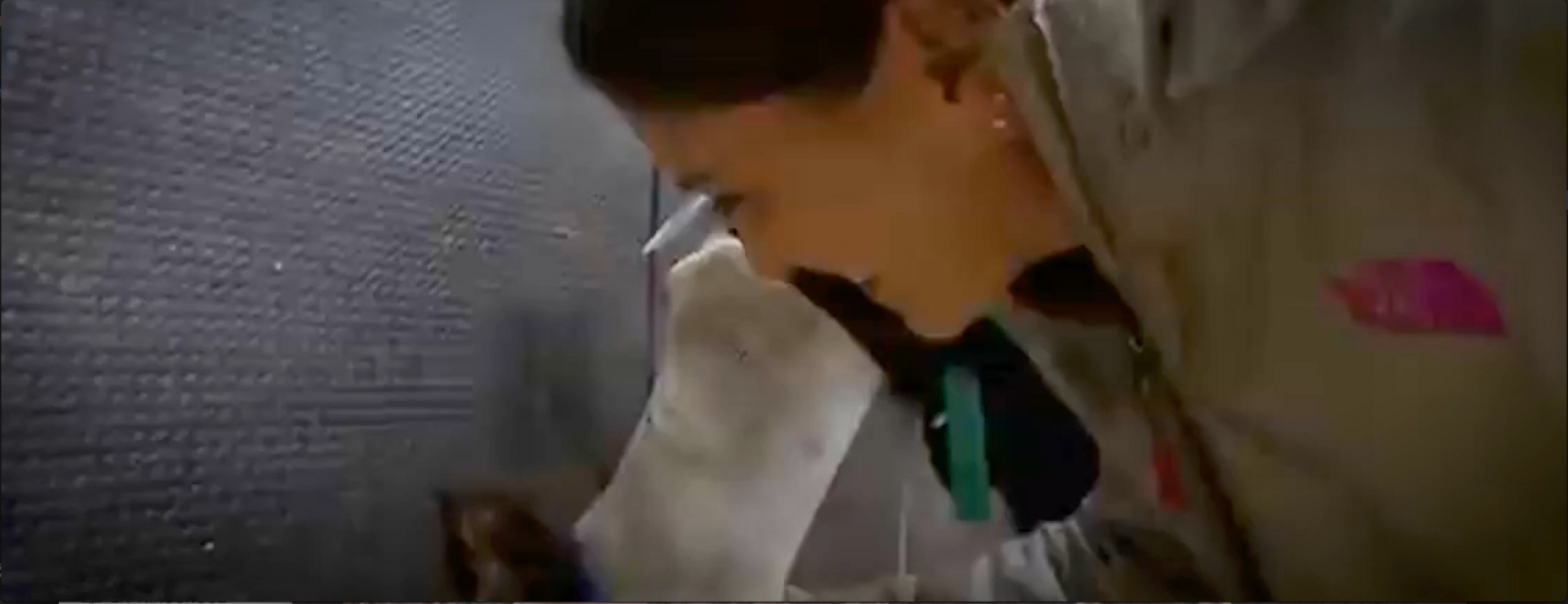JAMIE PEYTON SNAPPED AN INSTAGRAM PHOTO of herself while aboard an airplane headed to England in May. In her hand, she held a tiny, stuffed horse wearing a University of California, Davis, T-shirt.
It was the perfect photo for the mission. The UC Davis integrative medicine veterinarian had been called to save a real horse. An 18-month-old gypsy cob pony had been found abandoned and starving in a field in Yorkshire. That wasn’t the worst of it.
Her face was horrifically scarred with oozing wounds from extensive third-degree chemical burns. The injuries left her unable to open her eyes.
“It appears to have been a malicious attack,” Peyton said. “It’s as though someone had poured acid on the top of her head and it dripped down her face to her mouth.”

Read more stories about human and animal health
A good Samaritan had brought the pony to local veterinarians who had heard about Peyton’s successful use of tilapia fish skins to heal a mountain lion and two black bears burned during the California wildfires last fall. Veterinarians in Yorkshire thought the novel treatment might work on the pony.
Within a few days, Peyton was on a plane to help. She carried with her a cooler full of sterilized tilapia skins that would eventually act as a healing biological bandage for the pony.

Little fish face
The torture and neglect that the pony had suffered was just horrid. She was skinny, lice-infested, had overgrown hooves, bad teeth, and a bleeding face. The overgrown hooves prompted vet technicians to name her Cinderella or “Cinders” for short, as she would soon get new shoes and become more like a princess.
“She didn’t want anyone touching her face,” Peyton said.
She and the Yorkshire team went to work cleaning the burns, removing dead tissue and applying ointments to ease the pain. Treatments such as cold laser therapy and pulsed electromagnetic field therapy were also applied.
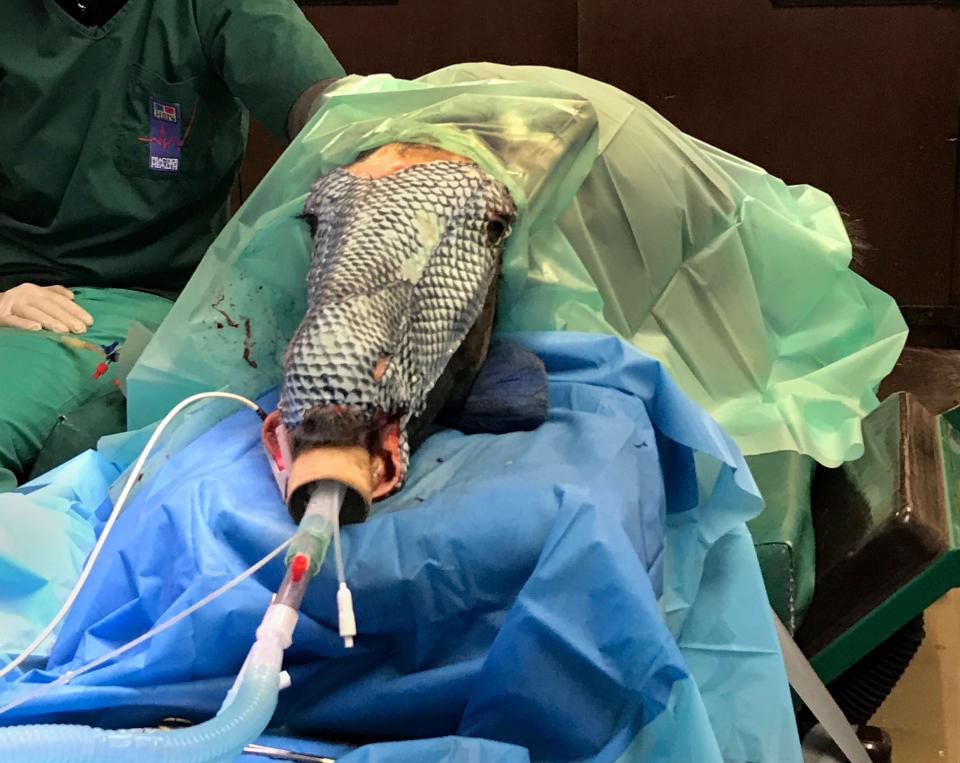
Peyton originally came up with the idea of using tilapia skins from reading about a group of doctors in Brazil that had used them to successfully treat burns on people. Brazil and many other developing countries lack human skin and artificial alternatives that are widely available in the United States to treat burn wounds. But tilapia is a farmed fish that is abundant. Their skins are usually thrown away.
Tilapia skin, like human skin, can transfer collagen, a healing protein. It can reduce pain. Peyton and the team went to work on Cinders’ burned face, suturing tilapia skins from the top of her forehead down to her mouth.
“We created for her what we called ‘a little fish face,’” Peyton said.
Within an hour of waking up from the anesthesia, Cinders was eating again. By the next morning, she let veterinarians touch her face.
“You’d think she’d want nothing to do with people, but the opposite was true,” Peyton said. “It’s so heartwarming.”
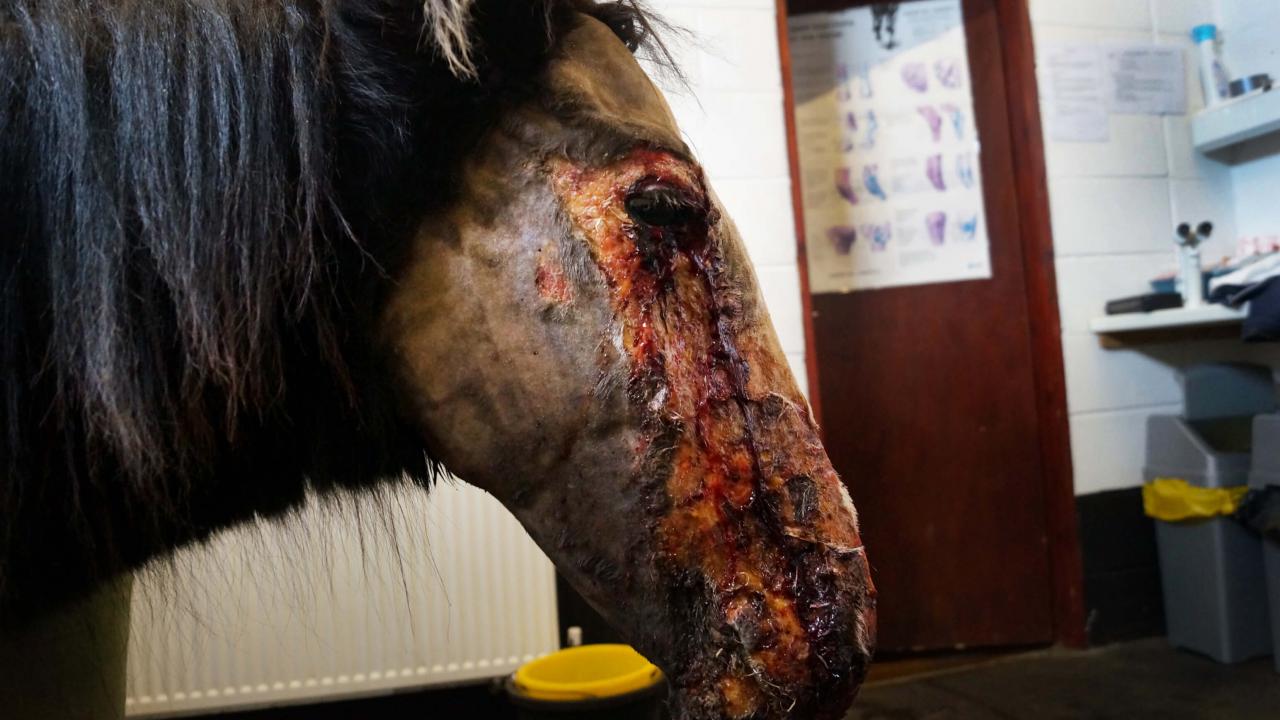
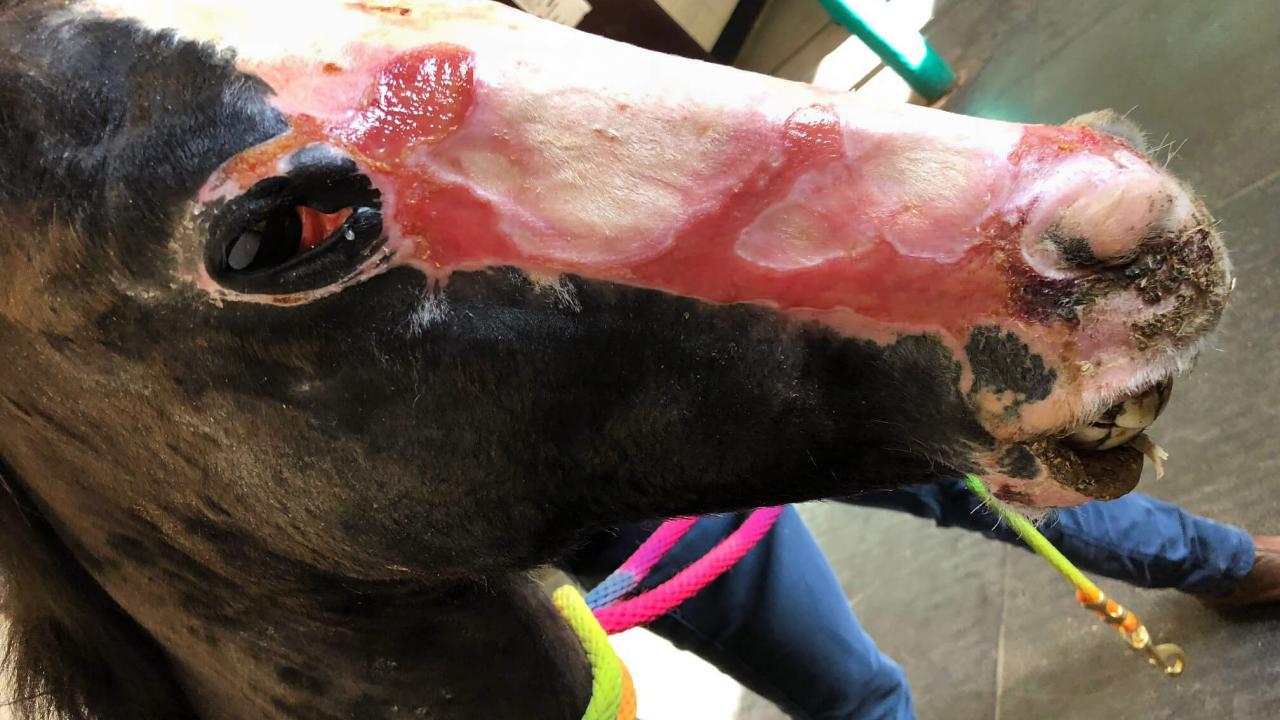
Treatment first used on bears, mountain lion burned in California wildfires
Cinders was the first horse to be treated with tilapia skins for burn wounds, Peyton said, but the first animal test case came in October during California’s largest recorded wildfire at the time, the Thomas Fire in Ventura and Santa Barbara counties.
The California Department of Fish and Wildlife rescued two adult female black bears and a 5-month-old mountain lion with third-degree burns on their paws -- a death sentence for big predators that must cover a lot of terrain to stay fed. One of the bears was found sitting with her paws in a stream of water, unable to move from the pain.
“You want to do everything possible to get these animals feeling better.” —Jamie Peyton
Deana Clifford, the wildlife agency’s senior veterinarian and an assistant clinical professor at the UC Davis School of Veterinary Medicine, treated the burns and enlisted Peyton to soothe the animals’ pain.
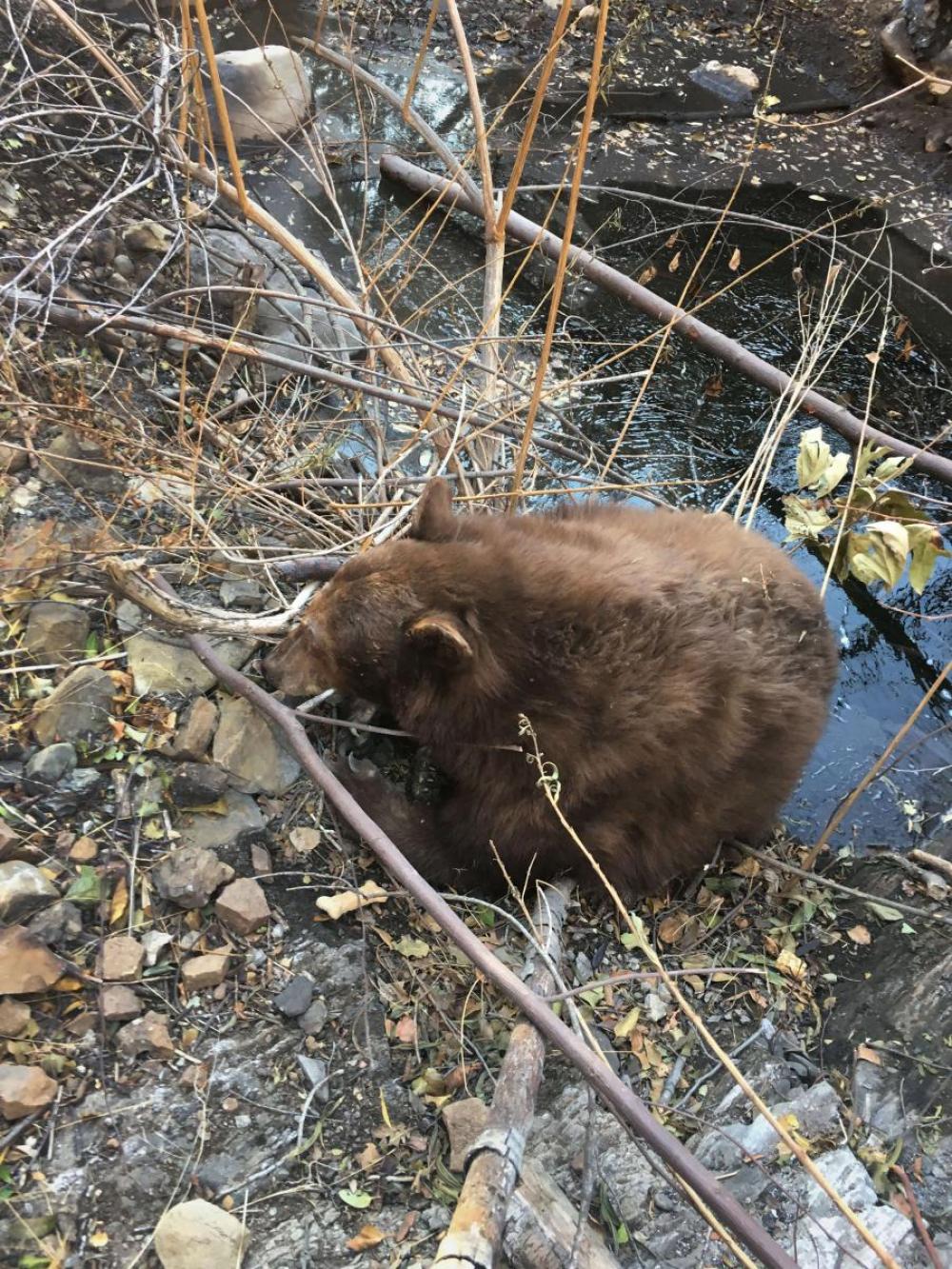
Peyton said the younger bear inspired her to think of an outside-the-box solution.
“When I saw the degree of injury that she had and how much pain she was in, it just tugged at my heart,” she said. “You want to do everything possible to get these animals feeling better. It’s not their fault they were in this horrible fire and they’re in a strange environment and they don’t know what’s going on and they hurt.”
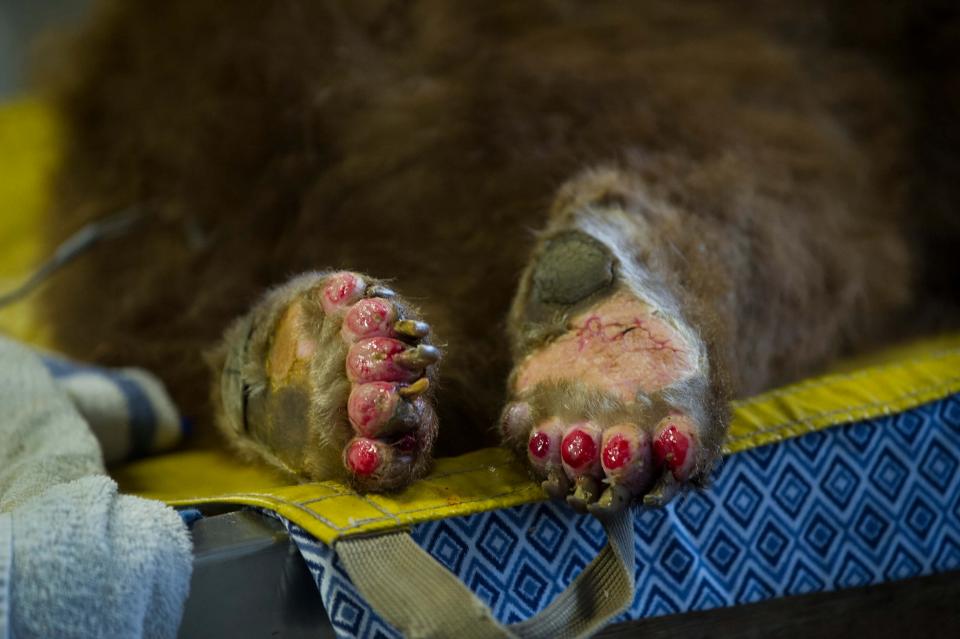
The tilapia skins were born out of sheer necessity, with veterinarians at the state wildlife investigations laboratory in Rancho Cordova working against the clock. They couldn’t risk the bears adjusting to captivity. Frequent bandage changes on wild animals would be too difficult. The team also had trouble getting the animals to swallow pain pills. Complicating the situation even more, they soon found out that one of the bears was pregnant.
“That was a game changer for us, because we knew it wouldn’t be ideal for her to give birth in confinement,” Clifford said. “We aren’t really set up to have a birth at the lab holding facilities, and we knew there was a high probability that she could reject the cub, due to all the stress she was under.”
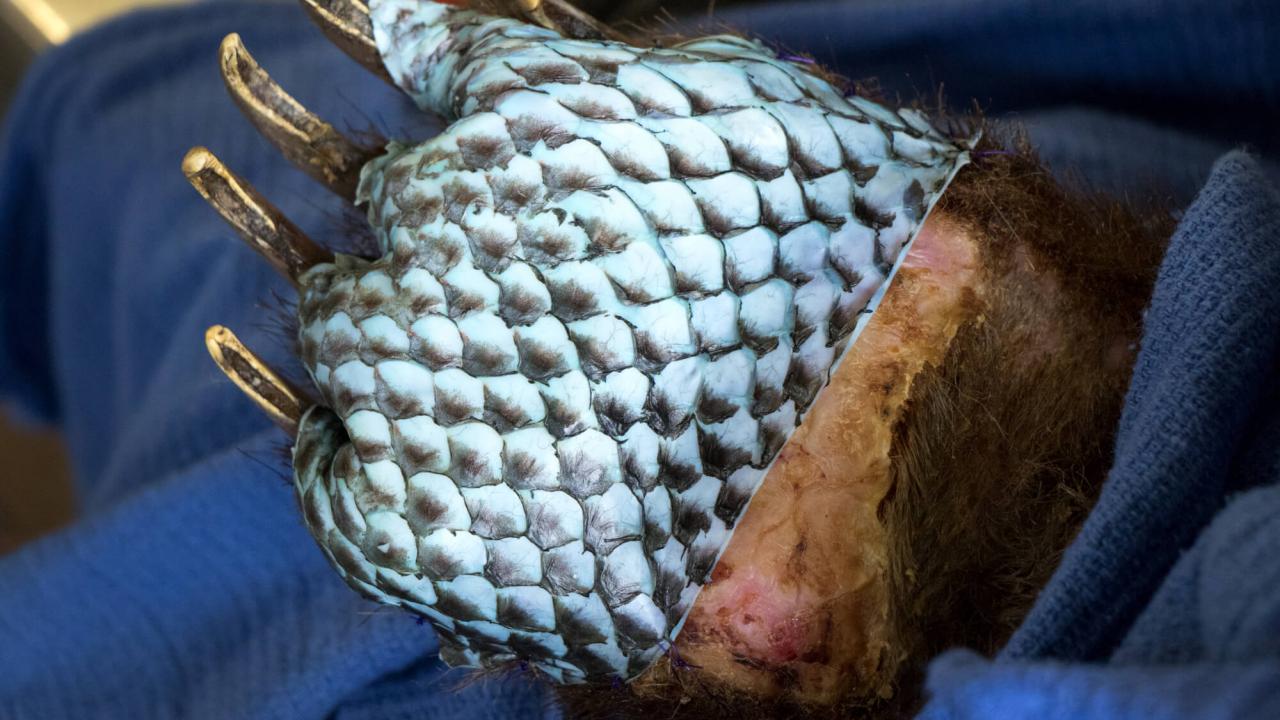
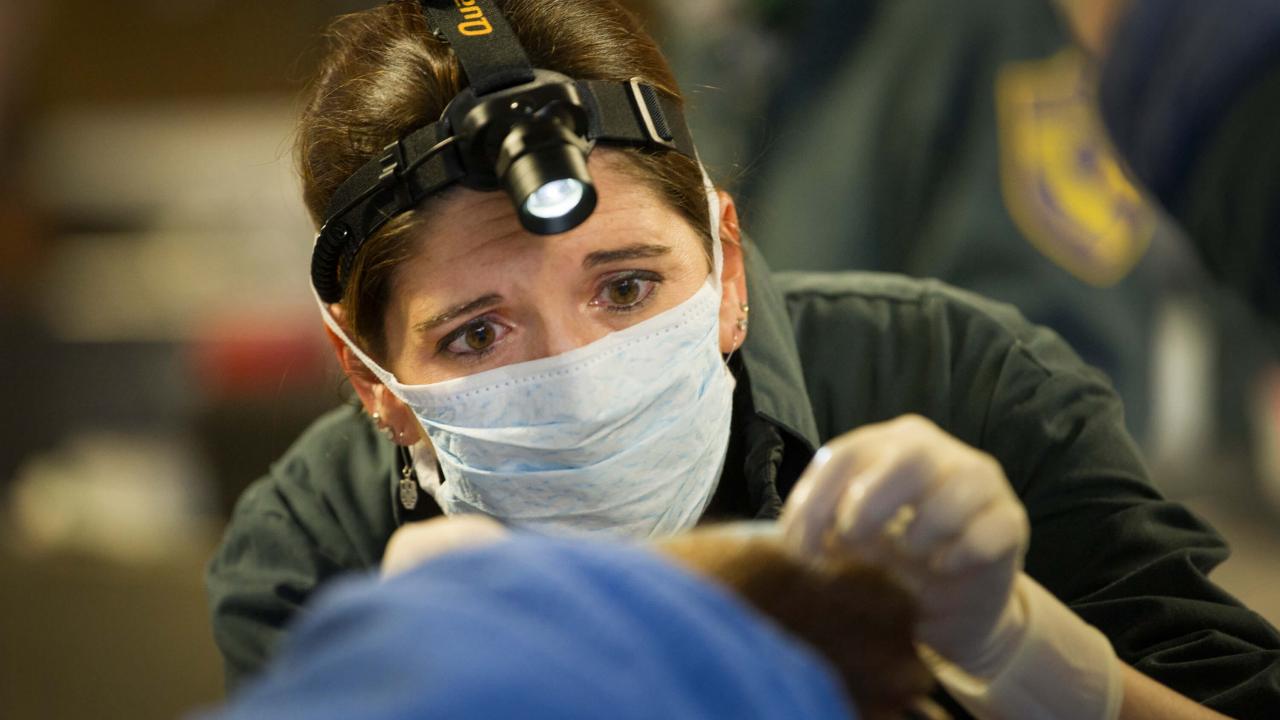
That’s when Peyton decided to try tilapia skins for the first time. She bought the tilapia at a local fish market and sterilized the skins, which removed any fish smell that could tempt the animals to eat the biological bandages.
Peyton sutured the tilapia skins to the bears’ paws. After the younger bear woke up, one of the first things she did was sit up with her paws on the ground.
“She was more mobile, which in my mind is a huge success for pain control,” said Peyton.
The fish skins can also be left on wounds longer than cloth bandages. Ordinary cloth bandages can block animals’ intestines if they are eaten. The mountain lion, which received the same treatment as the bears, eventually ate his. Peyton also wrapped the bears’ feet in rice paper and corn husks. Photos and video of the bears went viral in the media, especially after Peyton called their feet “little spring rolls” or “California bear roll feet.”
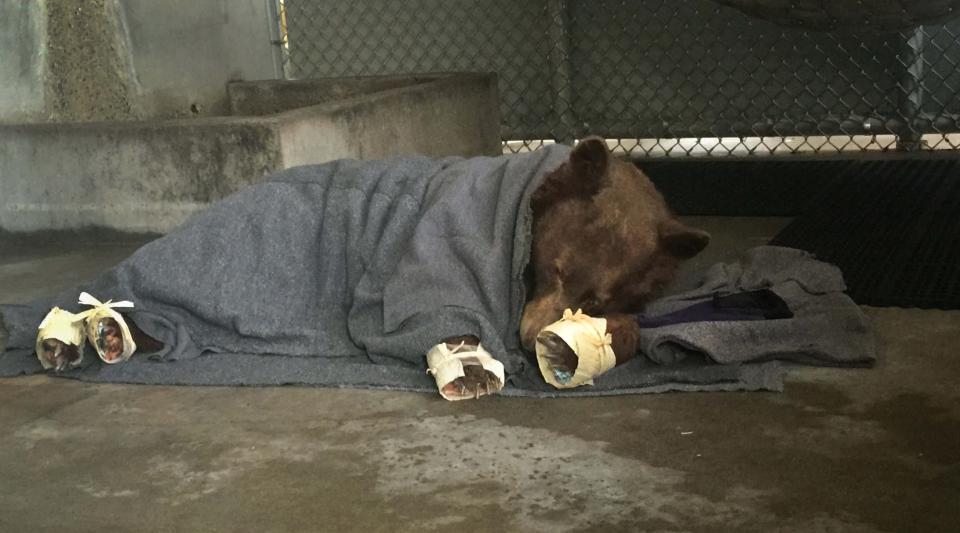
Just like Cinders, new skin had grown back on the animals’ paw pads in a matter of weeks.
Because the mountain lion cub was so young, biologists believe he would not survive in the wild. He’s now cared for at the Sonoma County Wildlife Rescue in Petaluma.
Wildfire destroyed both bears’ original habitat, so state wildlife officers created separate dens for them in the Los Padres National Forest. Each still wears a satellite collar. Every few days, the collars register “pings,” indicating normal behavior and movement. Biologists have tracked them traveling miles from their dens, indicating that their paws must be healing well.
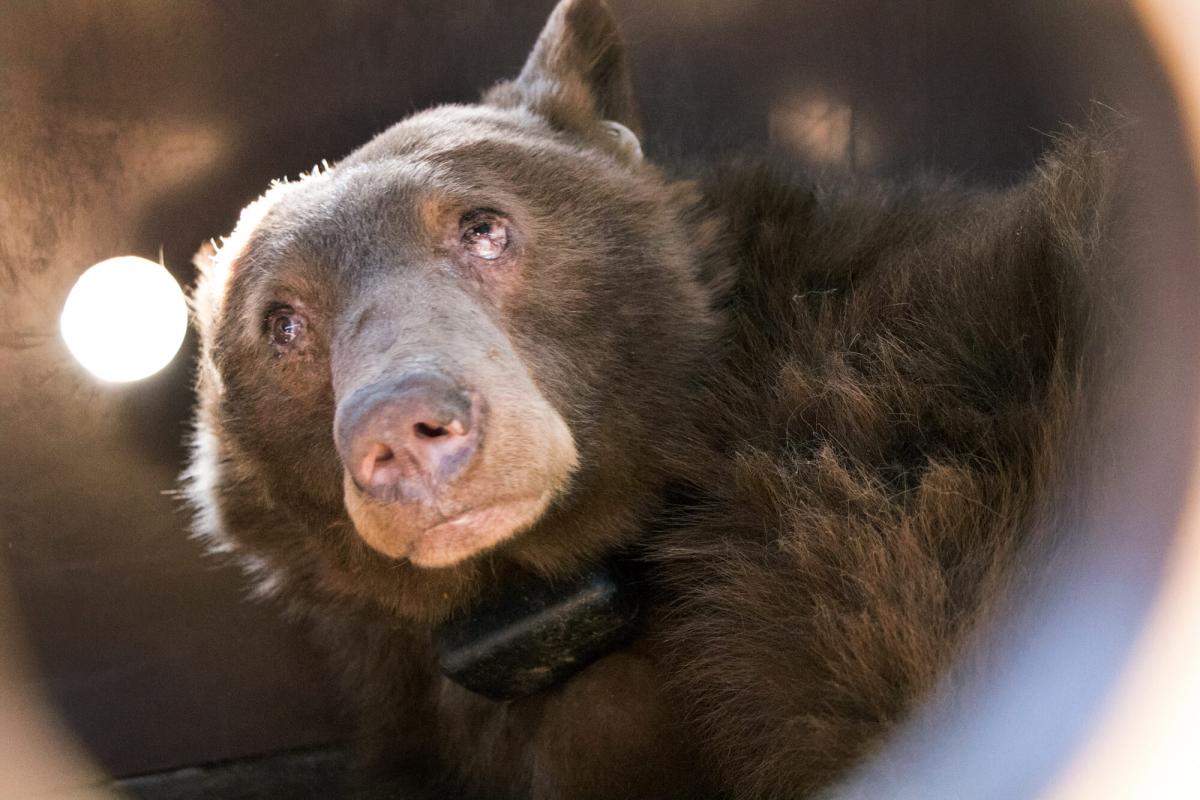
Will fish skins become standard care?
The implications for treating burns with tilapia skins extend beyond the veterinary field.
The World Health Organization calls burns a global public health problem, accounting for 180,000 deaths a year. While burns are treatable, advances in treatment and care have been applied mostly in higher income countries where people have access to expensive dermal substitutes.
Peyton believes the low-cost and widespread availability of tilapia skins makes it a game-changer for treating burns, whether animal or human.
“We’ve been doing the same standard of care for burns for years and people are very comfortable doing that, but it doesn’t mean that’s the best care,” Peyton said. “To advance medicine, we have to keep pushing ourselves to find new alternatives.”
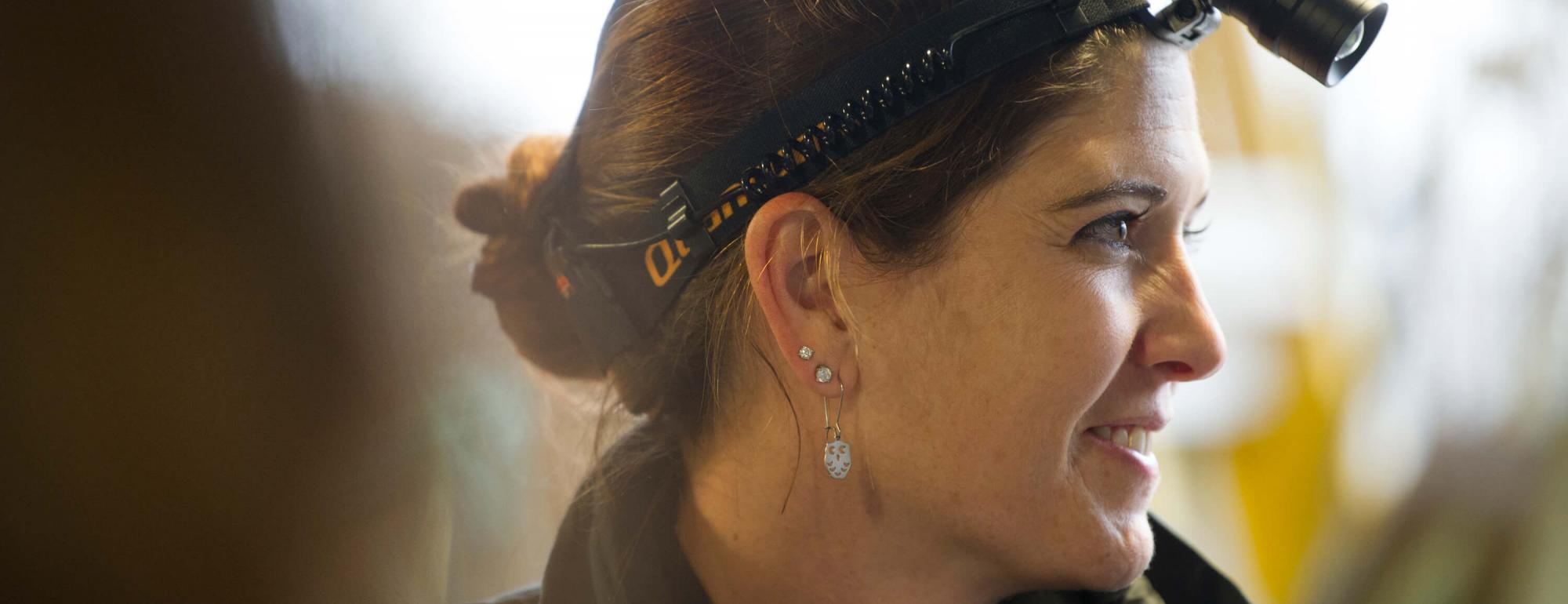
Media contact: Amy Quinton, UC Davis News and Media Relations, 530-752-9843, amquinton@ucdavis.edu
Related Stories

Preventing the Next Pandemic
The aim of the PREDICT project is to enable global surveillance for viruses with the potential to spillover from animals to people and cause pandemics.

Guardians of the Genome
One in eight women will be diagnosed with breast cancer at some point in their lives, but through new discoveries at the genetic level the personal nature of cancer will eventually be what helps to beat it.

Minibrains Move a Step Closer to Helping Patients
UC Davis brain surgeon Ben Waldau has groundbreaking success growing parts of human brains.
